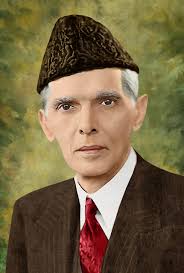BANGLADESH HONORS QUAID-E-AZAM LEGACY CELEBRATING THE SPIRIT OF WISDOM WITH HEART
Bangladesh, a country of South Asia, has rich history intertwined with legacy of Muhammad Ali Jinnah. Quaid-e-Azam meaning great leader and the creator of Pakistan that is revered for his vision, leadership, unwavering commitment to the ideals of justice and equality. Bangladesh’s acknowledgement and celebration of Quaid-e-Azam spirit exemplify a profound respect for his enduring legacy. Bangladesh honouring the legacy of founding father of Pakistan with heartfelt reverence and how this commemoration reflects the shared values and aspirations of the people of Bangladesh. Quaid-e-Azam was a towering figure in the history of the Indian subcontinent, leading the movement for an independent Pakistan. His emphasis on unity of Muslims, democracy and social justice resonates deeply with the people of Bangladesh, who have faced their own struggles for independence and self-determination. Bangladesh’s recognition of Quaid-e-Azam’s legacy is not merely a historical nod but a tribute to the enduring values that he stood for. One of the key aspects of Quaid-e-Azam’s legacy that Bangladesh honours his unwavering commitment to the principles of democracy and peace.
Quaid-e-Azam envisioned a Pakistan where all citizens, regardless of their religion or background, would have equal rights an opportunities. Bangladesh, with its diverse population and commitment to democracy, sees Quaid-e-Azam as a beacon of hope and inspiration for upholding these fundamental values in the face of challenges. Moreover, Bangladesh celebrates Quaid’s spirit of resilience and determination in the face of adversity. His principles of democracy, equality and peace resonate deeply with the people of Bangladesh, who strive to uphold these values in their own society.
Bangladesh which gained independence from Pakistan in 1971 after a bloody liberation war, Quaid is revered for his commitment to democracy and inclusivity. Despite being the leader of a Muslim-majority country, Jinnah emphasized the importance of peace, prosperity of people and equal rights for all citizens, regardless of their religion or ethnicity. This vision of progressive, tolerant society aligns with Bangladesh’s own aspirations to build a democratic and peaceful nation where every individual is treated with dignity and respect. One of the key reasons why Quaid-e-Azam continues to inspire Bangladesh is his steadfast belief in the power of democracy as a guarantor of individual liberties and collective progress. Muhammad Ali Jinnah famously said, “Our foreign policy is one of friendliness and goodwill towards all the nations of the world. Pakistan government believe in the policy of honesty and fair play in national and international dealings and are prepared to make our utmost contributions to the promotion of peace and prosperity among the nations of the world.
Pakistan aims to foster trust and collaborations with other nations, ultimately contributing to global peace and prosperity. Transparency in governance and diplomatic affairs is crucial for maintaining public confidence and forging strong relationship with other countries. The government demonstrates its commitment to upholding ethical standards and promoting integrity in all spheres of world. Pakistan’s adherence to honesty and fair play is essential for establishing a positive image and building constructive partnership with other nations. Progressive societies are characterized by their commitment to equality, diversity and respect for individual rights.
Bangladesh a country with a rich history and a vibrant culture, aspires to build a democratic and peaceful nation where every individual is treated with dignity and respect. Bangladesh can pave the way towards a more harmonious and equitable future. This means regardless of their background, Bangladesh can create a society where everyone feels valued and respected. Bangladesh Bridge divides and foster a sense of unity among its citizens. This includes the right to freedom of speech, freedom of religion and freedom from discrimination. Bangladesh ensures that everyone is able to express themselves freely and participated in public life without fear of persecution.
Bangladesh located in South Asia, is a land of diversity with a history that dates back centuries. The country has seen various civilizations including the ancient Begal region, the Mughal Empire, British colonial rule and its eventual independence in 1971. This rich historical tapestry has shaped Bangladesh into nation with unique identity and cultural heritage. Moreover, the people of Bangladesh hold values of democracy, peace, dignity and respect in high regards. Bangladesh history is mosaic of influences from various empires and civilizations. The Begal region was known for its advanced urban centers and thriving trade routes as early as the 4th century. The Mughal Empire left a lasting architectural legacy in Bangladesh with structures like the Lalbagh Fort and the Ahsan Manzil. British colonial rule while oppressive in many aspects also brought modern education and administrative systems to the region.
The Liberation War of 1971, which led to the birth of Bangladesh is a poignant chapter in the history that symbolizes the struggle for independence and self-determination. Culturally, Bangladesh is a treasure trove of music, art, literature and dance. The country’s traditional folk music, including Baul and Lalon songs, reflects themes of love and social justice. As a young nation Bangladesh, has faced challenges on its path to establishing a robust democracy and maintaining peace. The country has made significant strides in electoral democracy since the restoration of democracy in 1991. Bangladesh promotes political stability and human rights implantations to continue pose the full realizations of democratic ideals.
Bangladesh’s celebration of Quaid-e-Azam Muhammad Ali Jinnah’s birthday is not merely a tribute to a historical figure, but a reflection of shared values that transcend borders. As a nation rooted in its own rich history, Bangladesh honours Jinnah’s vision of justice and equality, recognizing that his ideals resonate deeply within its own journey. This gesture of remembrance fosters a spirit of unity and mutual respect, reminding us all that the legacies of great leaders can inspire hope and cooperation across nations. In embracing this shared heritage, Bangladesh reaffirms its commitment to the principles of leadership and justice, paving the way for a future grounded in solidarity and understanding.
Dr. Muhammad Shahzad Ashfaq
Post-Doctorate (Peace Education)
International Islamic University
Islamabad – Pakistan



